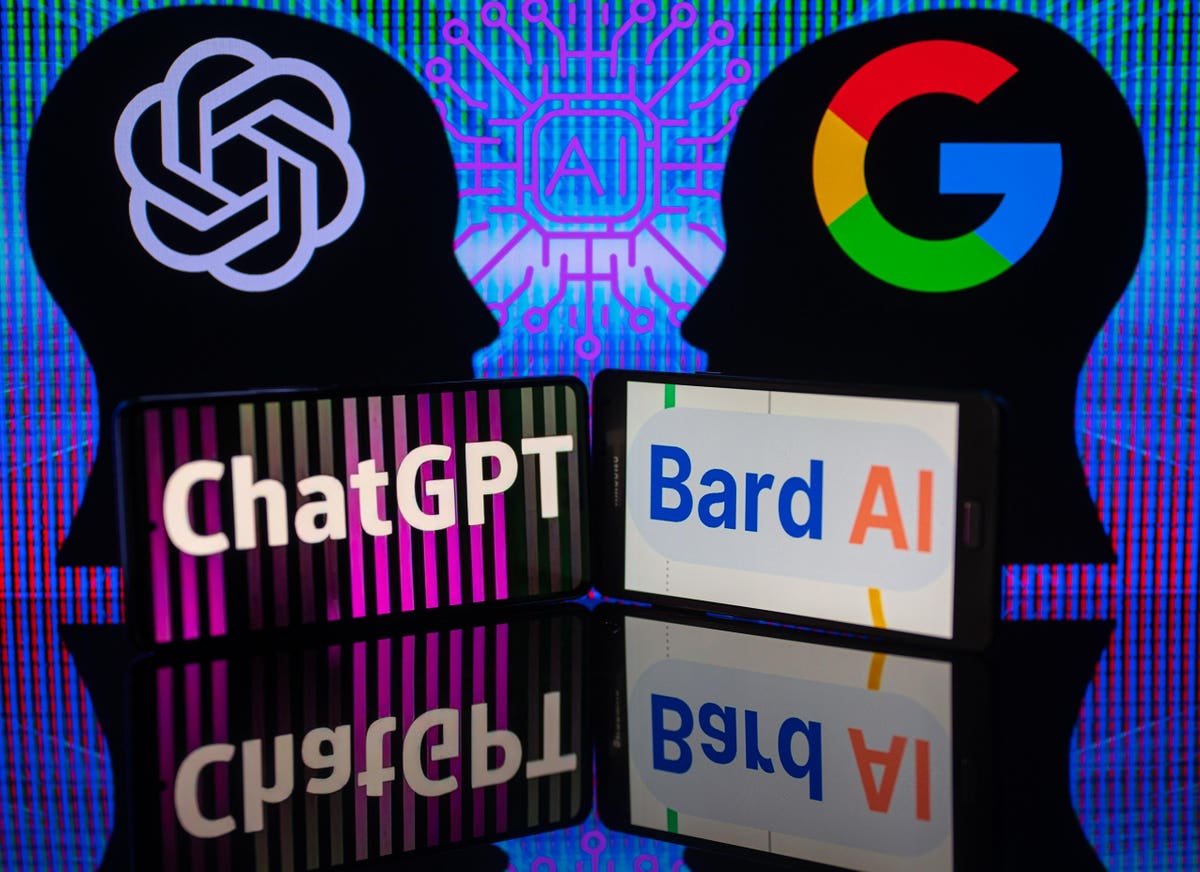An exciting near-term opportunity is shaping up for shareholders of Alphabet (GOOGL), the parent company of Google. Let me explain.
Executives at Alphabet on May 10 will host the annual Google I/O developers conference. This is an important opportunity to reset the narrative about artificial intelligence projects at Google.
Investors should buy Alphabet shares ahead of Google I/O.
Contrary to popular belief, Google has not fallen behind Microsoft (MSFT) in the race for artificial intelligence supremacy. While Microsoft has made some impressive AI strides thanks to its partnership with OpenAI, the startup behind ChatGPT, Google still has a formidable edge in several key areas of AI research and development.
One of these areas is natural language processing, the ability of machines to understand and generate human language. Google has been a pioneer in NLP since its inception, with products like Google Search, Google Translate, and Google Assistant. These cutting-edge applications rely on sophisticated NLP algorithms. And Google’s state-of-the-art NLP models BERT, T5, and Meena have set new benchmarks for question answering, text summarization, and conversational agents.
Google also excels in computer vision, an AI field devoted to teaching machines to recognize and analyze images. The development of CV at Google began in 2006 with the acquisition of YouTube. The video sharing service gave Google engineers access to a massive amount of image data. Engineers soon leveraged CV expertise to create innovative products such as Google Photos, Google Lens, and Waymo, a subsidiary that uses advanced object detection for self-driving cars.
Artificial neural networks may not be a phrase that rolls easily off the tongue like ChatGPT, yet this technology is foundational to most AI applications. Google has been a leader in ANNs since its launch of Google Brain in 2011, one of the first large-scale projects to use deep learning.
The AI problem at Google is not about engineering. It’s about marketing.
ChatGPT seems so important because a human-like chatbot seems impossible given the perceived state of technology. Computers are not supposed to be “think”, let alone carry on reasoned conversation.
At Google I/O executives must reset the conversation about AI and Google.
Admittedly, this is not where top brass at Google shine brightest. Sundar Pichai, chief executive is an engineer’s engineer. He quietly gets the work done. Pichai came to Google in 2004 after working as a materials engineer at Applied Materials (AMAT), and a stint as a management consultant at McKinsey and Company. He later oversaw the development of Google Chrome, Chrome OS, Gmail and Google Maps. Pichai is affable yet staid, and his management style reflects this temperament. The current conversation about AI demands more. Investors believe Google is facing an existential threat from ChatGPT. Pichai must change that narrative. He needs to turn up the AI wow factor.
Fortunately, Google has a big lever to pull.
Google Assistant is a personalized, AI virtual assistant launched in 2016 at Google I/O. Assistant lives in every Google smart home product, Android-based mobile device, Android Automotive-equipped car and truck, and even on iPhones via popular Google applications like Chrome, Search and Maps. This is billions of devices. Assistant is the perfect vehicle for Pichai to show off what Google AI engineers can do.
At Google I/O on May 10 Pichai is expected to reveal the latest incarnation of Bard, Google’s answer to ChatGPT. Bard is the natural evolution of Assistant because the AI software is ubiquitous, and already capable of fully duplexed conversation.
More importantly, expectations for Bard are low. Pichai rushed a Bard demo in February to get ahead of Microsoft’s Bing/ChatGTP reveal. It did not go well. The presentation was riddled with errors and glitchy playback. Shares plunged and the narrative about Microsoft’s AI lead was born.
At a share price of $107.34, Alphabet trades at 17.3x forward earnings and 4.8x sales. The company has gross profit margins of 55.5% and profit margins of 20.6%. Shares could rally to $122.40 heading into May 10, a gain of 14% from current levels.
Unlock your full investment potential with our Strategic Advantage newsletter. Join us for a $1 trial and start achieving your financial goals today!
Read the full article here



